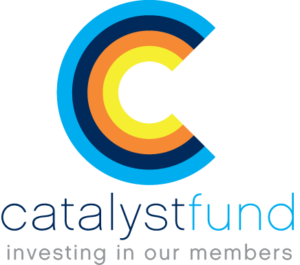 We’re looking for your comments on the six ideas submitted to the Catalyst Fund in 2018. One of these ideas may be funded for implementation – what looks most interesting to you and your library, archives, or museum (LAM)?
We’re looking for your comments on the six ideas submitted to the Catalyst Fund in 2018. One of these ideas may be funded for implementation – what looks most interesting to you and your library, archives, or museum (LAM)?
**Please note that if you submitted a proposal (i.e., it has a budget) to the Catalyst Fund, we have received it. Proposals will not be open for public comment; only ideas.
The Catalyst Fund is an award program that funds new and innovative projects by LYRASIS Members. It accepts two types of applications: proposals, in which the applicant provides a plan of work and, if selected, receives the funds to do the project, and ideas, in which the applicant makes a suggestion about a common need in the field that, if selected, LYRASIS would address through research, planning and/or testing.
Ideas do not come with plans or budgets. Members that submit ideas instead focus on needs within the field and what would be of benefit to LAMS and/or their users. While each idea will later go through a rigorous review process by field experts, many reviewers last year wished for broader input from the community. So, for a short, two-week period, we’re posting the ideas on the LYRASIS blog and asking for YOUR comments.
Would one or more of these ideas solve a problem or improve a program at your LAM? What’s an innovative concept worth testing? If developed, would you use the output from the idea in your LAM? Are others working on the idea already that LYRASIS should connect to if the idea is selected for support? Do you have a suggestion that would make this idea even better than it already is?
Please share your thoughts on this year’s Catalyst Fund ideas at the postings below. To comment, please click on the Idea Title:
Austin Peay State University
Idea Title: Library Multi-E-Reader Application
Idea Summary Statement: The purpose of this idea is to work towards developing a library multi-e-reader application for library users. Developing a universal e-reader application would allow users to read e-books and e-journals without having to find, learn, and maintain various tools and resources.
Bucknell University
Idea Title: Why Are We Reinventing the Wheel… Again?
Idea Summary Statement: Form a group of academic librarians from various types of institutions to develop one or more open tutorials covering aspects of the research process to promote student success in academic-level research. The group should prepare documentation to facilitate customization and best practices for future development of open, accessible tutorials using principles of instructional design.
Franklin W. Olin College of Engineering
Idea Title: Pocket Librarian
Idea Summary Statement: Today, digital literacy is an essential skill, but it is frequently difficult to find reliable resources on the internet. Pocket Librarian enables librarians to connect with their users outside of the walls of the library. Our project will increase digital literacy, expand the library community, and provide easy access to all library resources even when people can’t make it to the library.
Kennesaw State University
Idea Title: Who Needs a Reference Librarian?
Idea Summary Statement: In a world flooded with intelligent digital assistance devices and Apps powered by Artificial Intelligence, who needs a reference librarian anymore? The goal of this idea is to understand the existing information seeking behaviors of students using these devices.
Lycoming College
Idea Title: Coming of Age in the Digital Era
Idea Summary Statement: To hold a national summit (symposium) on “Coming of Age in the Digital Era” to try to solve the problems of sustainability for digital collections.
University of Hawaii at Manoa
Idea Title: Roundtable on Rights Management Systems and Metadata
Idea Summary Statement: To research standardization of rights metadata to create interoperable access. RightsStatements.Org has developed international standards for outward-facing metadata, but there is far less research concerning inward-facing statements and necessary fields of information. Such research is needed for opportunities to enhance the public domain thereby enhancing scholarship and innovation.
